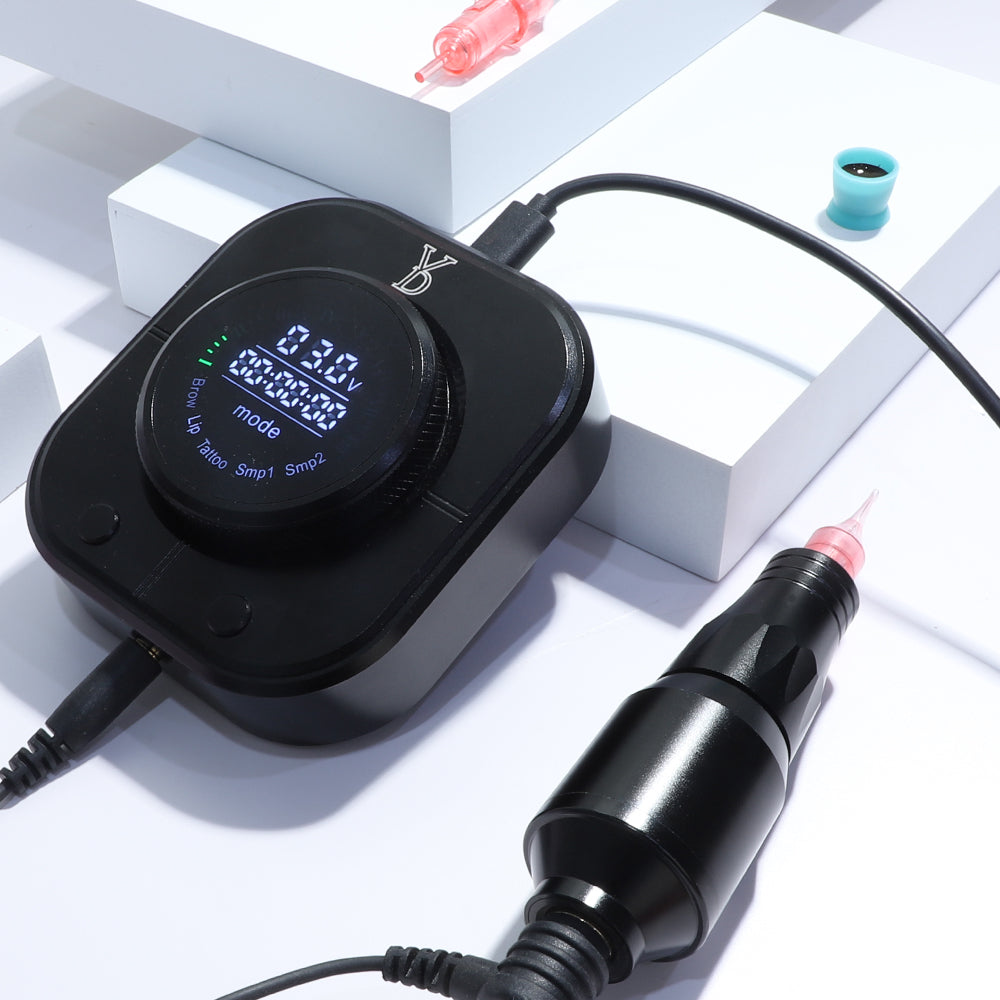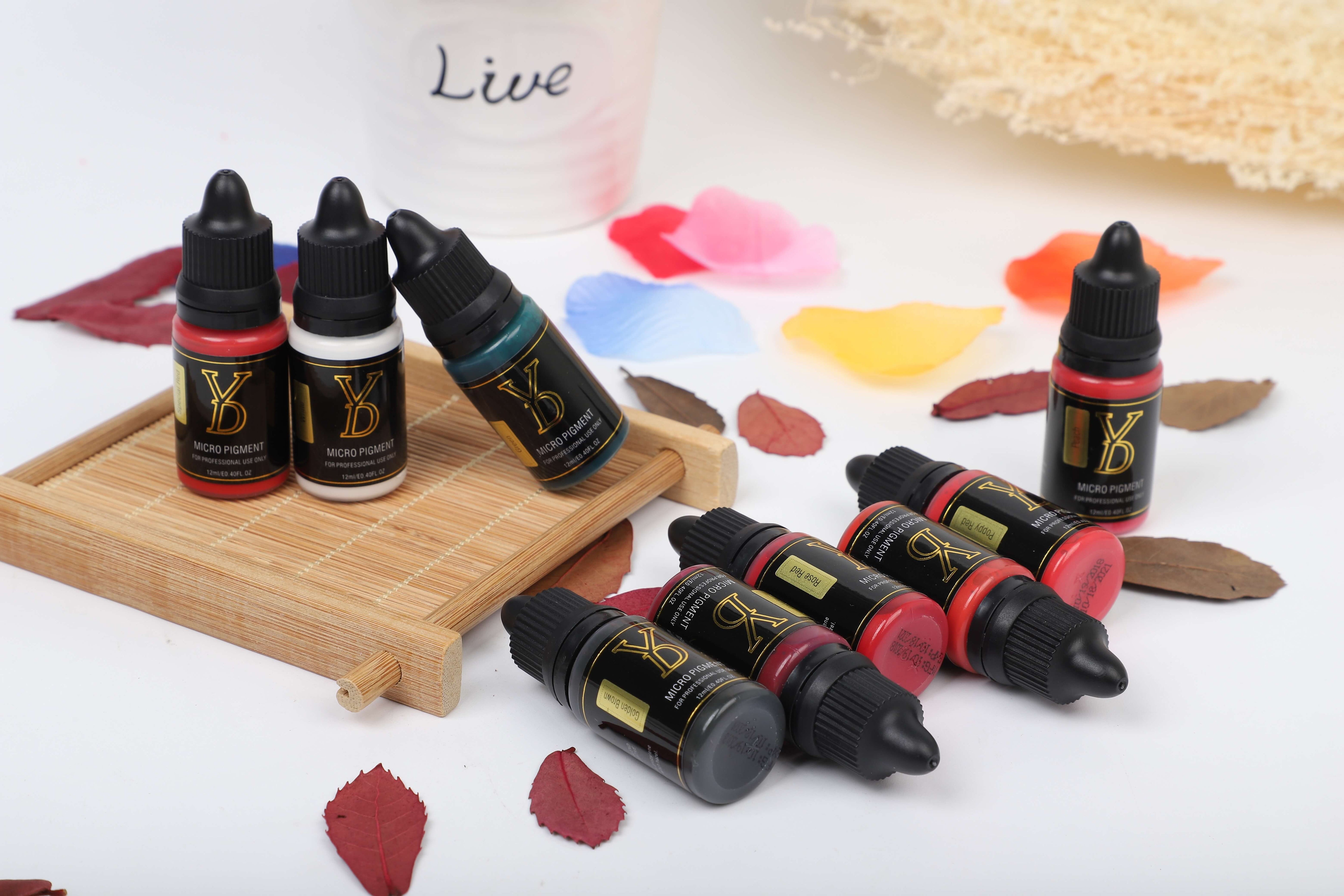Introduction
Permanent Makeup (PMU) has revolutionized the beauty industry, offering long-lasting, natural-looking brows. The key to flawless results lies in selecting the right PMU brow pigments. Whether you're a professional artist or a beauty enthusiast, understanding the differences between PMU pigments, microblading pigments, and permanent makeup ink is crucial.
In this guide, we’ll explore:
-
The differences between PMU pigments, microblading pigments, and permanent makeup ink
-
How tattoo pigments compare to PMU pigments
-
The best PMU pigments for different skin tones
-
Why ink makeup quality matters for longevity
1. PMU Pigments: The Foundation of Perfect Brows
PMU (Permanent Makeup) pigments are specially formulated for semi-permanent cosmetic procedures. Unlike traditional tattoo pigments, they are designed to fade naturally over time, avoiding unnatural blue or green undertones.
Key Features of High-Quality PMU Pigments
Organic & inorganic blends – Ensures stable color retention
Fade evenly – No patchy discoloration
Non-toxic & hypoallergenic – Safe for sensitive skin
Table 1: PMU Pigments vs. Traditional Tattoo Ink
| Feature | PMU Pigments | Tattoo Pigments |
|---|---|---|
| Longevity | 1-3 years (fades naturally) | 5+ years (may turn bluish) |
| Color Stability | Stays true to tone | May oxidize over time |
| Safety | FDA-approved for cosmetics | Not always PMU-safe |
Best for: Artists who want natural, long-lasting brows without harsh fading.
2. Microblading Pigments: Precision & Natural Hair Strokes
Microblading pigments are optimized for fine, hair-like strokes. They have a thinner consistency than PMU pigments, allowing for better blade penetration.
Why Microblading Pigments Differ
-
Lighter viscosity – Flows smoothly for crisp strokes
-
Cool undertones – Prevents warm/orange fading
-
Faster healing – Less trauma to the skin
Table 2: Best Pigments for Microblading by Skin Tone
| Skin Tone | Recommended Pigment Shade | Brand Example |
|---|---|---|
| Fair | Light Ash Brown | Tina Davies "Brow Daddy" |
| Medium | Taupe or Medium Brown | Permablend "Taupe" |
| Olive/Dark | Deep Chocolate or Cool Black | PhiBrows "Dark Brown" |
Best for: Artists specializing in hyper-realistic hair strokes.
3. Permanent Makeup Ink: What Sets It Apart?
Permanent makeup ink is a broader category that includes PMU pigments and microblading pigments, but not all inks are equal.
Ink Makeup: Key Considerations
🔹 Particle size – Smaller particles = smoother application
🔹 Vegan & cruelty-free – Increasingly demanded by clients
🔹 Healing test – Some pigments shift color after healing
Table 3: Top 5 Best PMU Pigments in 2024
| Brand | Best For | Key Benefit |
|---|---|---|
| PhiBrows | Natural-looking | Minimal fading, true cool tones |
| Tina Davies | Microblading | Smooth application, no bleeding |
| Permablend | Ombre Brows | Rich color payoff |
| Li Pigments | Sensitive Skin | Organic, hypoallergenic |
| Fusion Ink | Longevity | 3+ years without touch-ups |
Best for: Artists who want premium, long-lasting pigments.
FAQs: PMU Pigments Explained
Q: Can I use tattoo pigment for PMU?
A: No! Tattoo pigments are too concentrated and may turn unnatural over time. Always use PMU-specific pigments.
Q: How do I choose the best PMU pigments for my client?
A: Consider:
-
Skin undertone (cool/warm)
-
Desired longevity (1-3 years)
-
Healing behavior (some pigments lighten 30-50%)
Q: Why does ink makeup fade faster on oily skin?
A: Oily skin breaks down pigments quicker. Use higher-density pigments like PhiBrows for better retention.
Conclusion: Invest in the Best PMU Pigments
Choosing the right PMU brow pigments ensures flawless, natural-looking results. Whether you prefer microblading pigments for fine strokes or permanent makeup ink for ombre effects, quality matters.
🔹 Pro Tip: Always do a patch test and consult pigment compatibility charts before application.
Ready to upgrade your PMU toolkit? Explore our top-rated pigments today!




